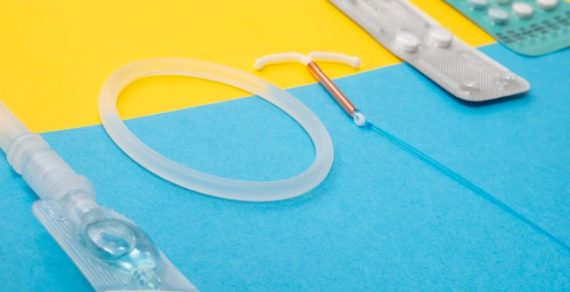Organic Personality Disorder what is this? Definition of an organic personality disorder and the main criteria for making such a diagnosis. Genetic factors occurring and the main clinical signs of this disease. A modern approach to the diagnosis and treatment of the disease. An organic personality disorder is a disruption of the brain’s function due to morphological changes in its tissues, which appear in a change in a person’s personal and behavioral characteristics. That is, damage to brain cells causes symptoms to appear on a mental level.
Table of Contents
Description and development of organic personality disorder
The primary and most important condition for the diagnosis of an organic personality disorder is that there is some damage to the brain tissue of mechanical, infectious, or another origin. The more severe and extensive the damage, the more severe the symptoms of an organic personality disorder.
If the area is small, the rest of the cells can improve their function and the person does not experience difficulties in intellectual processes, thinking, and speaking. However, in the case of severe emotional overheating, or other stressful conditions, such a disease can go into a period of remission by developing the classic clinical picture of an organic personality disorder.
The disease develops over the years and some people get used to personality changes. At some point, the disorder reaches social neglect and it is much more difficult to help the patient in this case. Therefore, the appointment and receipt of appropriate treatment will give one valuable time for quality of life.
The mode of formation for the organic disorder is hidden at the cellular level. Nerve cells damaged by disease or injury lose their ability to perform their functions fully and signals are delayed. Of course, other brain cells will try to take over some of the activity of the injured area, but this is not always possible, especially if the area in question is quite large. First, they affect thought processes, cognitive function, and intelligence. Accurate statistics cannot be confirmed as organic personality disorder manifests as a disease with many others. It is often not even reported due to the severity of the underlying diagnosis.
Underlying Causes of Organic Personality Disorder
The diversity of etiological factors creates some difficulties in the diagnosis and treatment of organic personality disorder. These include mechanical injuries, infectious diseases, and oncology.
The following etiological factors are most often reported in practice:
- Serious brain damage injuries … Any mechanical effects affect the condition of the brain and can cause the development of various symptoms of organic origin. The severity of the trauma must be important for the development of a persistent personality disorder. In mild cases, the surrounding cells can repair damage and the person does not show changes in behavior, thinking, and other activities.
- Infection … This should include viral diseases (including AIDS), and bacterial diseases. An organic personality disorder is often caused by a fungal infection. Their specificity is in the target damage to brain cells, which leads to their loss of function. Depending on the location of the disease process, it can be encephalitis, encephalitis, and other diseases.
- Tumors … Unfortunately, the location of the disease process in the brain obliges even benign differentiated tumors to be considered malignant. The proximity to the main centers of human life makes such a disease extremely dangerous. Therefore, one of the reasons for the development of organic personality disorder in oncology should be considered. Even the smallest tumor interferes with the work of a local group of neurons and causes failures that can affect a person’s psyche and behavior. This often happens even after prolonged forgiveness or radical surgery.
- Vascular diseases. The most common diseases at present – atherosclerosis, hypertension, diabetes – are often chosen as their main damage to the blood vessels of the brain. Because they provide sensitive neurons with oxygen and nutrients, disruption of blood flow to the brain will cause ischemic attacks. Prolonged development of these diseases leads to prolonged hypoxia of brain cells, disrupting their function and signaling. Therefore, this can manifest itself as a mental symptom in the form of an organic personality disorder.
- Alcoholism and drug addiction … The systematic use of all psychotropic drugs affects the functioning of the brain. Hallucinations irritate the areas of the cerebral cortex that are responsible for perception. Accordingly, over time, the cells stop responding to the actions they take and organic damage appears. This should include all psychotropic drugs that can somehow affect the condition of the brain and, with prolonged use, cause irreversible deformities.
- Autoimmune diseases… Some nosology from this group is characterized by specific effects on nerve tissue. For example, in MS, myelin sheaths are replaced by connective tissue. Points in such a process explain the name of this disease. The more nerve tissue is replaced by connective tissue, the more likely you are to develop an organic personality disorder.
- Seizures … The main cause of the most common disease in this group, epilepsy, is a persistent focus where nerve impulses constantly excite a certain part of the brain. This inevitably leads to disruption of the functioning of such areas and can manifest itself in changes in behavior and thinking. The longer a person has this disease, the more likely they are to develop an organic personality disorder.
Impressions of organic personality disorder
The symptoms of this disease, regardless of the cause of its development, are quite similar. That is to say, everyone with an organic personality disorder has some common characteristics that are not difficult to notice when talking. The depth that appears in the symptom already depends on the brain damage.
Organic personality disorder can be diagnosed if a person has two or more of the following symptoms for more than six months:
- General Behavior … First, one changes one’s habits, feelings, and needs. He approaches simple tasks differently, does not plan them, and loses the ability to think a few steps ahead. That is, strategic thinking is lost almost immediately. These changes should be taken into account in the same person’s condition before the illness. For example, if he was mild-tempered, a little cheerful and seldom thought ahead, these symptoms cannot be taken into account with an organic personality disorder.
- Motivation … People with this disease gradually lose interest and motivation to perform difficult tasks where it is necessary to overcome certain obstacles and difficulties in order to achieve a goal. From the outside, it looks like an apathetic will to change anything in your life. At the same time, the fastest character is lost. One is not able to defend one’s own opinion and even form it for some reason. His way of thinking is greatly simplified.
- Instability … Such people are extremely emotional, but their effects are often inconsistent with the circumstances around them. That is to say, aggression, unbridled laughter, anger, or bitterness is not related to any aspect of life. Often such feelings replace others and it is very difficult to convince a person of the fundamentals of such things. In addition, joy or persistent apathy is often pointed out.
- Failed to learn … It is very difficult for a person with an organic personality disorder to learn. For example, if this is a child who suffered trauma in childhood, then his intellectual activity will be a significant problem. Acquiring new skills and knowledge is a rather complex process that requires the activation of many spiritual processes and locking methods. With organic damage, cognitive function is too complex a task for the brain.
- The toughness of thought … Intellectual activity is one of the first to suffer from an organic personality disorder. You lose the ability to think fast and effectively. Even the simplest tasks require maximum concentration and considerable work from him. It takes some time to make the usual decision. The toughness of thought is found in almost all patients, making them similar to each other.
- Changes in sexual behavior … This factor, unlike the previous ones, can manifest itself in different ways. For some, it is increased libido, for others the contrary. It all depends on the particular type of person suffering from an organic personality disorder. Various sexual disorders are common.
- Rave … A person suffering from an organic personality disorder can build their own “logical” chains that will be different from those generally accepted. Over time, the patient becomes more skeptical, closely monitoring people’s reactions, looking for treasures in their words, and hidden meaning. Judgmentalism leads to the formation of misconceptions that can also be seen as part of an organic personality disorder.
How to Deal With Organic Personality Disorder
A variety of modern technologies allow you to find an approach to the treatment of almost any pathology of the psychic spectrum. The complexity of this disease is that it is inherently secondary and the underlying disease can complicate and limit the treatment of organic personality disorder. Therefore, a physician should be involved in choosing the best treatment. It is absolutely impossible to treat such pathology on your own!

Medical treatment
The arsenal of modern psychotropic drugs allows you to choose the appropriate treatment for each symptom of an organic personality disorder. That is, the approach is individualized for a more specific effect. The doctor selects a specific drug based on the characteristics of each patient.
Main groups of pharmacological psychotropic drugs:
- Anxiety medications … In some patients, viscous thinking and other cognitive impairments cause anxiety and worry. They cannot sit still and torment themselves. In this case, it would be advisable to prescribe drugs from the group of anti-anxiety drugs. These are rather old, entrenched methods that have long been used in psychiatry to correct anxiety disorders. Most often, Diazepam, Phenazepam, Oxazepam are prescribed.
- Antidepressants … The condition of a person with cognitive impairment and emotional instability is extremely unstable. Depression is present in most patients, but only a few require special pharmacological prescriptions. Depression can significantly worsen the disease and it is, therefore, necessary to prevent it in a timely manner. Amitriptyline is mainly used for this purpose.
- Antipsychotics … This rather broad group of drugs is used in the case of emotional instability, aggression attacks, and socially dangerous actions. It is also advisable to appoint her if the ideas of deception, paranoid thoughts, or emotional turmoil are in a clinical picture. Depending on the manifestation, select one or another antipsychotic. Eglon, Triftazine, and Haloperidol are most commonly used.
- No tropics … These drugs improve cerebral circulation and promote the flow of oxygen to the cells. Their appointment is necessary to improve or maintain cognitive functions at a level that ensures the socialization and maintenance of a person’s normal lifestyle. Representatives of no tropics are Phenibut, Amnion.
Treatment of the underlying disease
Be sure to consider the presence of an etiological factor in the treatment of organic personality disorder. An old head injury, tumor, infection, or other medical condition needs to be treated. If the severity of the underlying disease is not eradicated, it will be extremely difficult to stop the symptoms of an organic personality disorder. First, the potentially life-threatening conditions that may be caused by the underlying disease should be taken into account. Treatment of organic personality disorder, in this case, will be completely inappropriate at this stage. Initial treatment for mental changes should be after the major manifestations of the disease have been eliminated, in their remission or benefits. For example, if a person has severe viral encephalitis, you should first pay attention to this pathology and only then, during the recovery period, start treating organic personality disorder. The symptoms of the latter can often be eliminated during treatment of the underlying disease. For example, the vascular disease will result in far fewer manifestations if appropriate treatment is continued. It also reduces the likelihood of developing a personality disorder.
Psychotherapy
This policy in the treatment of organic personality disorder plays an important role in the whole arsenal of methods. Its effectiveness can vary greatly from person to person, so the choice of psychotherapy is an individual decision.
First of all, you should work out what psychotherapy is aimed at organic personality disorder and then compare the symptoms and decide if such a method is appropriate in a particular case:
- Depression … Talking to an experienced psychologist will help alleviate all your inner fears and conditions for depression. With the help of psychotherapy, you can diagnose the existence of certain psychological problems that you are stuck on, discuss them and solve them. Thus, with optimization, one can get rid of the depressive condition.
- Proximity Problems … An increase or decrease in libido often worries a person with an organic personality disorder. And because of shyness, apathy, or autism, he cannot share with family and friends. With the help of psychotherapy, especially psychoanalysis, it will be possible to diagnose such problems and find their psychological roots.
- Socialization … The ultimate goal of all psychological assistance is to adapt the patient to a normal life, where he can work together with others, not differently or lagging behind. The task of the psychologist is to prevent problems that may arise during socialization and to develop behavioral patterns that will actually protect a person from feelings of incompetence.
Conclusion
An organic personality disorder is a fairly common disease that is currently incurable. That is, it is almost impossible to return a person to the condition that was observed before the illness. The only goal of treatment is to stabilize the condition and eliminate the severity of the manifestations.




